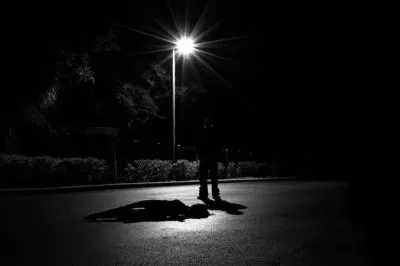- Originally Published on October 22, 2024
How to Respond to Harassment as an Influencer

Get Help Right Away.
TRANSCRIPT
Introduction
No one should have to endure online abuse, especially while you’re trying to build a career that you love. If you’re an influencer facing harassment, stalking, or threats, know that you are not alone and you don’t have to suffer in silence.
Hi, I’m Mike Pelagalli, an attorney with Minc Law. I’ve been practicing law for almost ten years now, and I’ve represented numerous influencers in a variety of matters, including combating online harassment.
I understand how isolating and terrifying this experience can be, but I want you to know that you can take action.
In this video, we’ll discuss the most common types of harassment influencers face and concrete strategies you can use today to protect yourself.
Common Types of Influencer Harassment
Influencer harassment can take many forms, and it’s crucial to understand when someone’s actions cross the line from free speech to unacceptable or unlawful behavior.
Defining Harassment by Jurisdiction
At the outset, harassment must be defined and analyzed given your specific jurisdiction and home state. The most common types of harassment that influencers face are:
- Impersonation accounts
- Doxing
- Stalking
- Beehive attacks
When Speech is Not Protected by the First Amendment
Not all speech is protected by the First Amendment. Speech becomes unprotected when it crosses certain lines.
Defamation
Defamation occurs when someone makes a false assertion of fact about you that is published to third parties and causes you harm. This type of speech is generally not protected.
True Threats
Speech is also not protected if it incites others to imminent lawless action against you. Any speech that threatens your well-being, violates your privacy, or doxes you is generally not protected under the First Amendment.
Documenting and Reporting Harassment
Now that you know how to identify harassment, let’s discuss the importance of documenting and reporting these incidents.
Collecting Evidence
The most important evidence you can collect while being harassed online includes:
- Screenshots of damaging posts
- Screenshots of any damages you may be experiencing
Make sure to collect active URLs for the profiles and individual posts causing you harm. If profiles or posts have been deleted, you can still take action as long as you have screenshots and URLs.
Reporting to Platforms
Each social media platform has its own terms of service and guidelines. Review these guidelines as you go through the reporting process to ensure your report meets the platform’s standards.
While reporting harassment through social media platforms is important, it may not always provide a long-term solution.
Taking Legal Action Against Harassment
If you’ve reported the harassment or abuse to online platforms and they have not taken action, your next step is to consult with an attorney.
Legal Advice Before Public Action
While it may be tempting to fight back publicly, I urge you to speak with an attorney first before taking any public actions. You can also consult with a public relations professional if the situation calls for it.
Strengthening Your Online Security
In addition to reporting harassment, you can take proactive steps to secure your online presence. Strengthening your online security and privacy is one of the most effective ways to protect yourself from harassment and digital threats.
Protecting Against Doxing
Doxing involves the public disclosure of private information about you, such as:
- Where you live
- Where you go to school or work
- Information about family members
Doxing is a serious problem, and you should take immediate steps to counteract it.
Steps for Online Security
- Use two-factor authentication on all important accounts.
- Ensure your personal email accounts do not overlap with your professional email or social media profiles.
- Consider employing a third-party digital risk protection monitoring service, such as the one offered at Minc Law.
When to Consider Legal Action
When harassment escalates to a severe or unrelenting level, it may be time to consider taking legal action to protect yourself and your brand.
Assessing the Severity of Harm
If online defamation or harassment is causing significant harm, speak with an attorney about your options to stop or mitigate the damages.
Risks of Legal Action: The Streisand Effect
If the harassment is not causing significant harm, there may be risks to taking further action, such as the Streisand Effect. This phenomenon occurs when taking action to alleviate a problem inadvertently publicizes or escalates it.
Consulting an Attorney
It’s important to understand the potential consequences of filing a public lawsuit. While you may know the underlying facts of the situation, an experienced attorney can apply the relevant laws in your jurisdiction and guide you toward the best course of action.
An attorney can help steer you away from the wrong path and toward the right one.
Conclusion
Online harassment is a serious and growing problem, especially for influencers. But remember, you are not alone. Use these strategies to prioritize your well-being and seek legal support if needed. You can take back control of your online presence and continue building the career, brand, and community you love.
Reach out to us by calling us at 216-373-7706 or visit Minclaw.com. There, you can use our live chat or fill out our contact form to speak with our intake specialists for a free case evaluation and get the support you deserve.
I’m Mike Pelagalli at Minc Law. Thanks for watching, and I’ll see you in the next video.
END OF TRANSCRIPT
This page has been peer-reviewed, fact-checked, and edited by qualified attorneys to ensure substantive accuracy and coverage.



